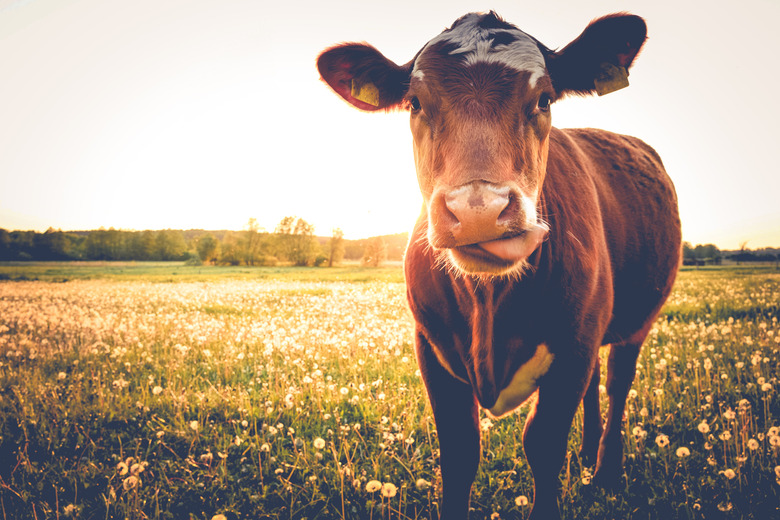What Are Prions?
When farmers first noticed their sheep had an unusual disease affecting their brains, they named it scrapie without understanding that prions were behind the illness. This degenerative disease affects the nervous system of sheep and other animals. It causes problems for livestock ranging from loss of coordination to convulsions. Today, scientists know that an infections protein or prion causes scrapie and mad cow disease.
TL;DR (Too Long; Didn't Read)
Prions are abnormal versions of proteins usually found in the brains or other tissues of animals and humans.
What Are Prions
What Are Prions
Prions stand for proteinaceous infectious particles, and they may cause diseases in some cases. Prions consist of proteins. When these proteins change in the brain, they can lead to fatal infections that kill humans and animals. Usually, prions only affect the brain and other neural tissues. However, it is important to note that everyone has prions in their bodies, but not all of them will cause an illness.
Only if prions become distorted or misshapen can they cause problems. Normal proteins have alpha helices, but abnormal proteins have beta sheets, which are flat. They are able to damage cells in the brain and other parts of the body.
How Prions Work
How Prions Work
Prions can self-reproduce, which means they are able to replicate on their own. It is important to note that prions only have proteins and do not have any genetic materials. They have a unique ability to reproduce without DNA. Unfortunately, researchers still do not know how they are able to accomplish this. They are still investigating exactly how prions work.
Prions in Biology
Prions in Biology
Prions are responsible for many diseases in humans such as Creutzfeldt-Jakob disease (CJD), Gerstmann-Straussler-Scheinker syndrome, fatal familial insomnia and kuru. In animals, prions cause bovine spongiform encephalopathy (BSE), chronic wasting disease (CWD), scrapie and different types of encephalopathy. Most of these are neurodegenerative disorders that can be fatal. In addition, there are no effective treatments to stop the infections.
The best-known illness that prions cause is mad cow disease. This fatal illness affects cattle by destroying their nervous system. Humans can also get sick by eating nerve tissues infected with mad cow disease. The prions destroy people's spinal cords and brains, which eventually kills them. Some of the symptoms include dementia, unusual behaviors, coordination problems and tingling body parts. An infected person may not see symptoms right away because prions can live in the body for a while. Researchers continue to study prions and hope to find treatments in the future.
Cite This Article
MLA
Bandoim, Lana. "What Are Prions?" sciencing.com, https://www.sciencing.com/what-are-prions-13710220/. 14 March 2018.
APA
Bandoim, Lana. (2018, March 14). What Are Prions?. sciencing.com. Retrieved from https://www.sciencing.com/what-are-prions-13710220/
Chicago
Bandoim, Lana. What Are Prions? last modified March 24, 2022. https://www.sciencing.com/what-are-prions-13710220/
